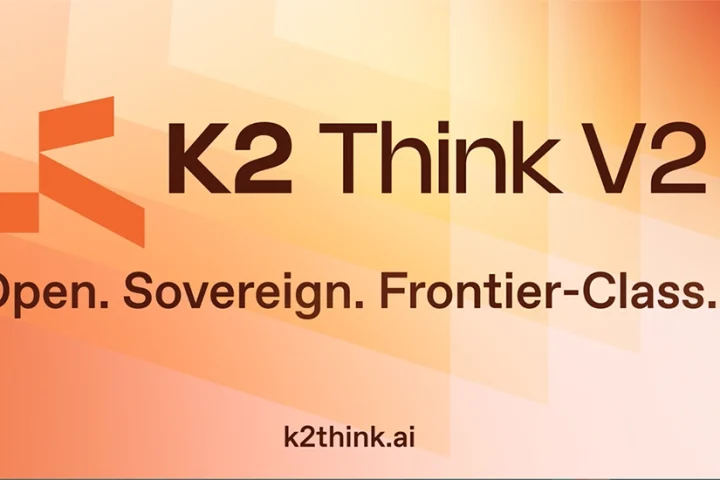At Technology Strategies Middle East, TSME, digital transformation is simply the process of upscaling business capabilities and creating new opportunities using technology as the foundation or catalyst. This is carried out by implementing digital technologies that elevate organisational systems and processes to meet the needs of changing business and market requirements.
“This fundamental reimagining of business in the digital age is digital transformation. Digital transformation is not successful with just the technology implementation but when all elements of change have been met including defined goals, aligned internal culture, seamless customer experience transformation and overall organisational alignment,” says Mohammed Abu Shmais, Director, Business Development, TSME.
With focus on transforming businesses and improving end user experiences, TSME adopts futuristic automation solutions to boost enterprise productivity and efficiency. According to Shmais, the key technologies that drive TSME business are:
- Process Management and Business Architecture: TSME has been working with ARIS since 2002, and is the first local UAE partner for ARIS
- Integration and Automation, webMethods ESB, BPMS: TSME has enriched its offering by adding wM from SoftwareAG product portfolio, a change that has moved TSME into the digital word, a decision that was adopted in 2012, and currently TSME is handling the biggest transformation projects in UAE using wM tools
- RPA from Automation Anywhere: In 2016, TSME has sensed the market need to adopt the digital workforce concept, and accordingly, TSME partnered with the RPA global leader Automation Anywhere. Currently, all TSME services are grouped and articulated around digital workforce concept
- Conversational AI from COGNIGY: With the pressure to introduce artificial intelligence capability to the market, TSME researched for the best technologies that can adapt to change and can be extended to cover different streams of AI, so partnered with COGNIGY, the growing conversational AI in 2018 and has started its implementation in the Gulf market
TSME boasts of two strong partnerships. First one with Software AG; a partner for over 16 years, the enabler for automating business processes and integration across all systems and applications and the second one is Automation Anywhere, another vital partner that is the provider of the intelligent RPA platform to TSME customers.
“In addition, TMSE has also developed and implemented propriety products such as CUBES, a tool that helps organisations to implement regulatory KPIs that impact the bottom line,” explains Shmais.
[quote font=”tahoma” font_size=”13″ color=”#262626″ bgcolor=”#f9f9f9″ ]Key technologies driving TSME business include Process Management and Business Architecture; Integration and Automation, webMethods ESB, BPMS; RPA from Automation Anywhere; Conversational AI from COGNIGY
[/quote]
Speaking about TSME’s go to market strategy to get the installed base of legacy customers to adopt transformation solutions, Shmais remarks, “Transformation as an exercise cannot happen in silos and has to be a unanimous decision at a company level beginning from the top management and decision makers. Once the board or decision makers are made aware of how the organisation can benefit and grow in this competitive environment through an illustrative exercise, it becomes their job to convince the extended teams of this massive overhaul. Therefore, TSME runs a Change Management module in parallel to a DX exercise which is imperative in case of companies with a legacy problem.”
For TSME, the metric of success or failure of a digital or business transformation initiative depends on factors like daily active users, ratio of new users to repeat users, constant user engagement, conversion rates and abandon rates.
The other metrics are based on trust, reliability, customer experience, employee performance and RoI. “Workflows that have traditionally heavily relied on legacy systems may encounter trust and reliability challenges. Hence, evaluating systems and closely watching out for reliability issues and monitoring them is vital. Evaluating user perception of the new technology is an extremely important metric as end-user satisfaction determines the desired organisational business performance,” explains Shmais.
The adaptability and satisfaction of the internal stakeholder community and finally, return on investment in the form of market value, revenue and growth numbers on the investments made are the other key metrics of success or failure of a digital or business transformation initiative.
Sharing his views on the conditions and requirements for a dream transformation project to be rolled out, Shmais believes that a greenfield product is always ideal to work on as it is a clean slate that can be designed from scratch. “However, the reality is totally different. Having said, a project where the attitude of the organisation and its team toward DX is of a positive frame with accountability at all levels, is truly a very enjoyable and gratifying one,” he adds.
To play a vital role across the industry in achieving continuous improvement results and success in organisational transformation is TSME’s future aspiration. “To simplify transformation journeys for businesses and create a systematic roadmap that will enable continuous transformation to ensure each step is closely aligned to the organisation’s goals and objectives. Moreover, a strong focus will remain on building teams, the soft skills in the process of change management and eliminating any barriers that fosters resistance to change, all in alignment with the values of the business,” Shmais concludes.
Key enablers:
- Well-defined transformation strategy and roadmap: Clearly defined objectives and a sound digital strategy is the foundation for success
- Customer centricity: It is a vital driver of digital transformation to create better and more efficient customer experience
- Organisational foundation and alignment: a focused vision, a commitment from all levels of the organisation, change catalysts and empowering technologies
- Innovation mindset: Innovation is powered by an organisational culture that is open to change, resilient to risk and overall supports and nurtures an innovative mindset
- Sustainability: Given that digital transformation is an everlasting journey to adapt, rethink and reshape, reengineering and optimisation of business processes in the most appropriate way for exponential growth and scalability through networks is a key driver to create sustainable value
- Empowerment: Empowering employees through a high-performing culture and enabling access to data and analytics accelerates user adoption and performance.
Key inhibitors:
- Perceived complexities: Perceived complexities of digital transformation tend to slow down the speed of adoption and change
- Lack of corporate vision for digital: If digital transformation is not seen as a company-wide process in line with the larger digital strategy, it could tend to take the vision and business goals off track
- Lack of success KPIs and measurement metrics: Measurable milestones are imperative in any digital transformation journey to map and track the goals and without a framework to measure, success will evade
- Rise-aversive culture: This is one of the biggest barriers to digital transformation. Digital transformation necessitates risk and a business that is unwilling to explore, and experiment will not lead to transformation success
- Unaligned culture and collaboration: Without every single employee being on board the digital agenda and aligned with the core digital strategy, the organisation will quickly find itself falling behind
- Lack of talent: Without the right skills in a business, organisations will find it difficult to complete their digital transformation projects
Mohammed Abu Shmais of Technology Strategies Middle East discusses how they help customers in adopting digital transformation solutions.


















